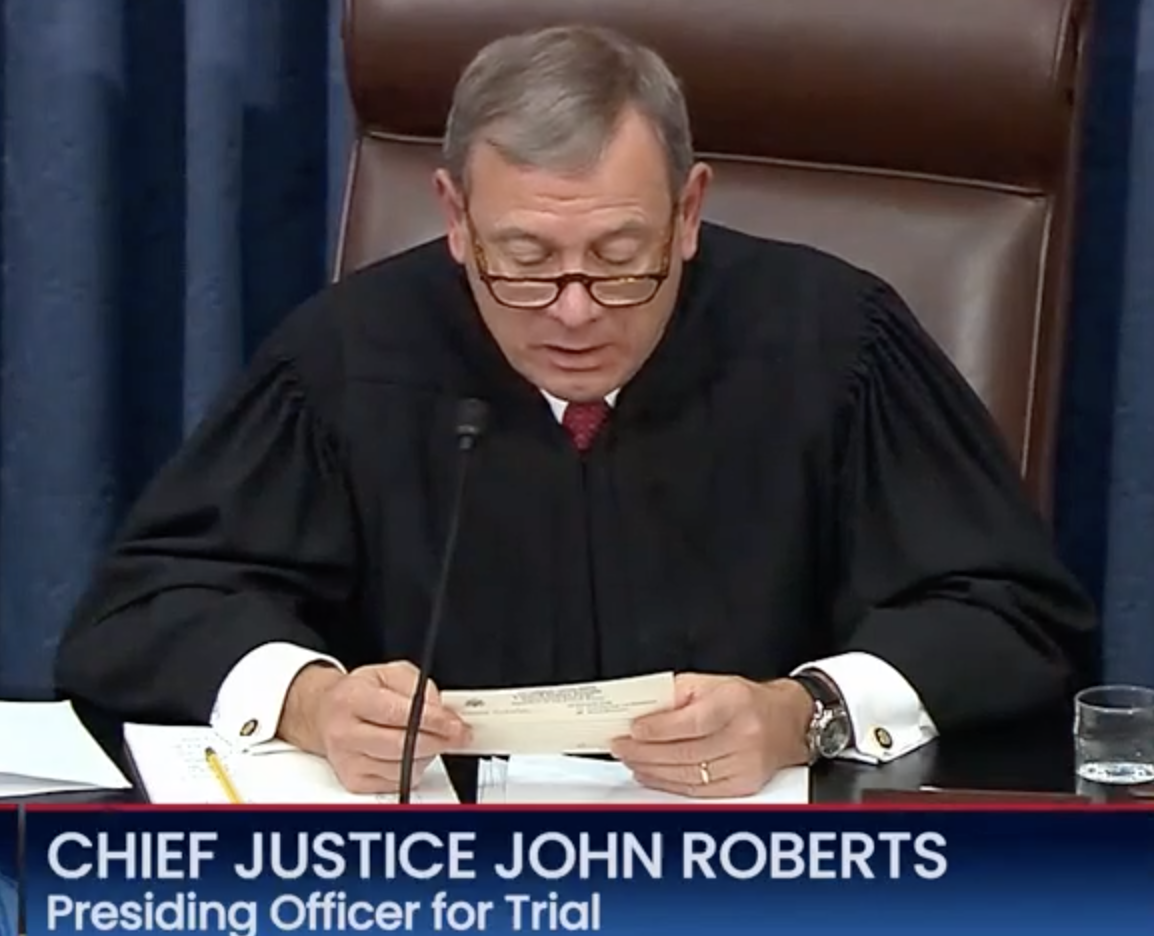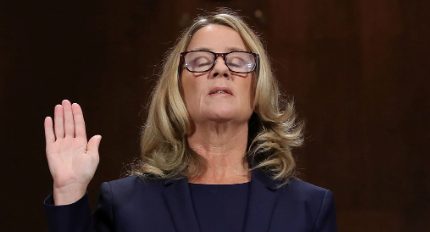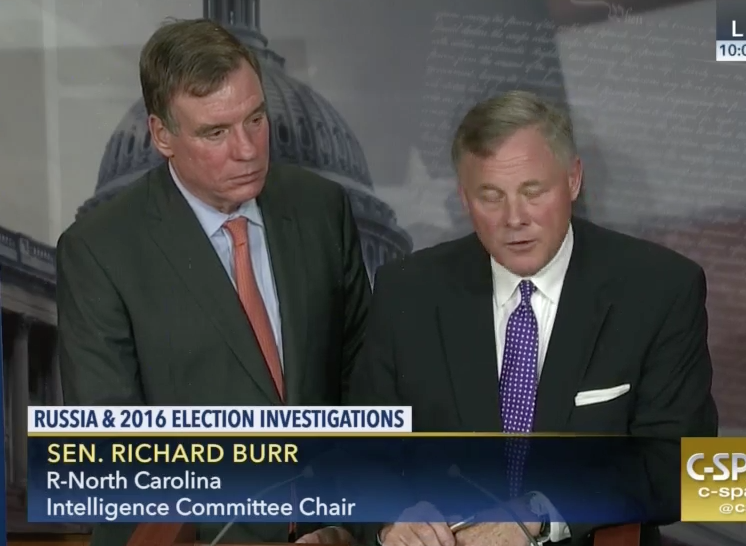Three Things: Day After Night Before Day of Disaster [UPDATE-2]
[NB: Updates will appear at bottom of post. /~Rayne]
What a flaming mess.
Bet you can’t really tell which mess I’m referring to — the Iowa caucuses, the State of the Union Address, or the rolling not-trial of Donald J. Trump.
But there they are, the three things this post will address.
~ 3 ~
What can I say that you don’t already know about Iowa?
You already know right-wing assholes began a negative influence operation before the caucuses began, spreading from the Epoch Times to Judicial Watch, Charlie Kirk to the Trump boys, amplified by Hannity and Twitter accounts.
New: Conservatives push false claims of voter fraud on Twitter as Iowans prepare to caucus. They’ve gotten a ton of traction, despite efforts by state officials to rebut them. From @isaacstanbecker + me: https://t.co/vPFwsvkS8y
— Tony Romm (@TonyRomm) February 3, 2020
A note from the Republican Iowa Secretary of State about the repeated misinformation put out by Judicial Watch, a conservative organization that routinely spreads absolute garbage about voter rolls. pic.twitter.com/vpyChUtsAG
— Jessica Huseman (@JessicaHuseman) February 3, 2020
And you already know that for some stupid reason badly-designed, poorly-tested mobile technology was pushed into production after too little time in beta. Just too many variables not reduced in advance of the crunch-time roll-out.
The fallout was and is messy, made worse by a commercial media model based on hyper-competition — who ever gets and publishes the story first wins is completely diametric to democracy’s need for accurate reporting for an informed electorate.
The caucus app developer, Shadow Inc. — yeah, you’d think this would be an over-the-top name for a software business which keeps its ownership opaque — has apologized today, explaining,
As the Iowa Democratic Party has confirmed, the underlying data and collection process via Shadow’s mobile caucus app was sound and accurate, but our process to transmit that caucus results data generated via the app to the IDP was not.
— Shadow, Inc. (@ShadowIncHQ) February 4, 2020
Let’s assume IDP = Iowa Democratic Party. This was not the DNC’s work, which more right-wing trolls tried to claim last night along with blaming former Clinton campaign manager Robby Mook for the app failure although Mook is NOT a software developer.
A lot of character assassination by the right-wing over the last 24 hours bears a strong resemblance to the character assassination of former ambassador Marie Yovanovitch. Trump-friendly mouthpiece makes egregious false accusation, picked up by Trump-friendly media, repeated by Trump’s family members, propelled even further by Trumpists and trollbots. What a coincidence.
Of course everybody has completely forgotten it took the Republicans more than two weeks — from January 3 to January 21 — to sort out who won their caucuses in 2012. How convenient the right-wing horde has something else they can bloviate about instead of their own failings. How convenient they were able to set up and complain about “rigged elections” laying the ground for their approach to November’s general election.
Once again we hear complaints about how grossly unfair Iowa caucuses are — they prevent disabled and working people from participation, and the state is the first to select winning primary candidates although it’s a small (31st in population) and non-diverse (90.7% white), unrepresentative of the rest of this country.
There’s also head scratching about apparent low turn-out. Can’t imagine why voters (who may have accessibility issues, lack transportation, work afternoons/evenings, can’t afford or find childcare) won’t turn out to caucus and sort through a large field of candidates even though they may already lean toward voting Democratic no matter which candidate wins the primary.
One piece worth reading and pondering, published in the aftermath of this year’s Iowa caucus, is this three-year-old article by David Auerbach, Confirmation Bias: Did big data sink the Clinton campaign? Auerbach thinks the Ada data analysis program was screwed up and both the Clinton campaign and DNC were prone to confirmation bias, failing to suspect the app could be bad.
But what if like Iowa’s IDP-organized caucuses relying on a mobile app which had not been adequately stress tested the big data program was simply too new and untried for its intended purposes?
One thing also bothered me re-reading Auerbach’s piece, given that he also wrote an essay in 2012, The Stupidity of Computers. Are folks designing and implementing these apps for politics failing because they’re like other software-based platforms? Have they “created their own set of inferred metadata, the categories propagate, and so more of the world is shoehorned into an ontology reflecting ad hoc biases and received ideas,” to the point where threats and risks outside of their imagination easily destroy their aims?
Is it at all possible that the same kind of lack of foresight and imagination that led to last night’s failure cascade also underpinned a big data analysis program which couldn’t see new foreign-born influences manipulating output?
Do read Auerbach, but with your eyes wide open; even Auerbach didn’t anticipate his own credibility being undermined by right-wing provocateurs. Yet another lesson about the impact of technology on human relations.
And yet another lesson about the difference between the chronically underfunded Democratic Party and the wealthy fascistic GOP. How much did the collapse of Obama for America after the 2008 election combined with Tim Kaine’s tepid DNC leadership contribute to the conditions which set up Iowa’s application meltdown — the absence of an adequately-funded national party-wide technology platform?
~ 2 ~
House impeachment managers made closing arguments in the Senate’s not-a-trial yesterday. Rep. Adam Schiff’s speech will be remembered well into the future for its excellence as American oratory.
“We must look at the history of this presidency and to the character of this president, or lack of character, and ask: Can we be confident he will not continue to try to cheat in that very election?…The short, plain, sad & incontestable answer is: no you can’t.” –@RepAdamSchiff pic.twitter.com/hQokZIGHEN
— House Intelligence Committee (@HouseIntel) February 3, 2020
The Senate debated the charges today. Michigan’s Sen. Gary Peters may have redeemed himself:
As an officer in the U.S. Navy Reserve and as a U.S. Senator, I took an oath to support the U.S. Constitution. After solemn consideration of the facts, I will vote to hold the President accountable for his actions. Read my full statement: pic.twitter.com/9CkCzxugsv
— Senator Gary Peters (@SenGaryPeters) February 4, 2020
West Virginia’s Sen. Joe Manchin was his craven self again, introducing the alternative of censure rather than conviction.
Sen. Joe Manchin calls for the Senate to “censure” President Trump: “Censure would allow this body to unite across party lines … his behavior cannot go unchecked by the Senate.” https://t.co/5SqfeTQeSY pic.twitter.com/Xo6CXL2fUf
— This Week (@ThisWeekABC) February 3, 2020
No. Hell no. Manchin isn’t up for re-election this year; he has no good excuse for offering the possibility Trump could crow about a bipartisan acquittal if any Democrat votes for something other than conviction and removal.
Further, Manchin’s sucking up to Trump won’t do a thing for his state. If he thinks this will sway the MAGA base in any way he’s unmoored from data showing Trumpists will not be moved. They believe what Fox News’ talking heads like Sean Hannity and Tucker Carlson tell them and that’s enough.
Nor will GOP senators vote for censure. They’re simply too bought, owned, corrupt, and spineless.
And of course both senators Lisa Murkowski and Susan Collins have played their roles as drama queens, vacillating on whether to vote for or against acquittal. Murkowski blamed partisanship while making the partisan decision to vote with her party for acquittal.
CBS NEWS EXCLUSIVE: Sen. Susan Collins (R-ME) tells @NorahODonnell she will vote to acquit Pres. Trump in the Senate impeachment trial, adding that she believes “the president has learned from this case.”
Watch more tonight at 6:30 p.m. ET. https://t.co/oxGYtYgjBw pic.twitter.com/Wv4PmGINZk
— CBS Evening News (@CBSEveningNews) February 4, 2020
Collins was bought. For the right price — $150,000 laundered through a front corporation in Hawaii — she will play stupid and give women a bad name in general.
A mysterious Hawaii company may have illegally funneled a six-figure contribution to a political group boosting an embattled Republican Senator 5,000 miles away, an ethics watchdog alleged https://t.co/ZxhFGseDoU
— The Daily Beast (@thedailybeast) February 3, 2020
Do get a load of the name of the front corporation. Sure. Like women suddenly forgot that Collins approved Justice Kavanaugh’s nomination to the Supreme Court.
Tomorrow’s vote will be unpleasant — brace yourselves.
~ 1 ~
In about an hour the tangerine hellbeast will shake off his sundowning and step up to the podium in the House to deliver what should be his last State of the Union message.
I refuse to watch that lying malignant narcissist. I’ll check for observations by people watchers like Dr. Jack Brown who will monitor Trump’s body language and Tom Joseph who follows Trump’s mental and physical decline.
I will not enjoy being reminded the dementia-addled wretch has the nuclear codes. Nor will I enjoy knowing Trump may use the podium of the people’s house not to communicate the progress made in governance but to campaign for his re-election.
What are the odds he has the moxie to ask another nation-state for help in his re-election right under our noses tonight?
~ 0 ~
This is an open thread. Begin kvetching below.
~ | ~ | ~
UPDATE-1 — 05-FEB-2020 12:45 P.M. —
Yeah, yeah, yeah…Jesus Christ, Jonathan Turley, let it go.
Since last night Turley’s posted ten tweets and an op-ed in The Hill bitching about the Speaker of the House not behaving like a compliant little Handmaid. He makes me wonder if he doesn’t have enough work and he’s bucking for a new paying gig.
By all means ignore the pussygrabber-in-chief’s multitude of disgusting behaviors, wretched political acts, and his slide into dementia, focusing instead on an effective female leader who doesn’t lick your reality TV narcissist’s toes.
Pelosi demolished decades of tradition in this ill-considered, ill-tempered moment. Many will celebrate her conduct and be thrilled by the insults. However, if she cannot apologize and maintain this tradition, Pelosi should resign as Speaker. https://t.co/JDLp096NDW
— Jonathan Turley (@JonathanTurley) February 5, 2020
Speaking of paying gigs, it occurred to me well after Turley appeared in December as an expert witness in front of the House Intelligence Committee that we don’t know if HIC asked Turley if he was a fact witness.
In his written statement Turley never mentions he wrote an article for The Hill, Could Robert Mueller actually be investigating Ukrainian collusion?
Nor did he mention the same piece was published the very same day in Kyivpost.
Also not mentioned is that this piece ran on February 21, 2019 — the date is roughly one week after Rudy Giuliani met with then-prosecutor general Yuriy Lutsenko in Warsaw, Poland, and almost one month to the day before John Solomon conducted a character-assassinating interview with Lutsenko for Hill.TV.
Turley’s piece furthers the idea that Ukraine was involved in collusion rather than Russia.
… But what is remarkable is how all investigative roads seem to lead to Kiev, not Moscow, in terms of key figures. It raises the question of whether Russian hacking efforts in the American election in 2016 were little more than what they seem as a clumsy leak and trolling operation. …
How did Turley end up fitting so neatly into the timeline?
UPDATE-2 — 05-FEB-2020 1:00 P.M. —
Though I linked to it in my previous update, I should probably share this here more overtly. This is very troubling; this man has the nuclear football within reach.
Cranked up, most likely on stimulants and Levodopa, Trump struggled all night with body jerking, teeth baring, arm trembling and a podium death grip. His dementia Tour de Force climaxed with this neurological body jerk/spasm. pic.twitter.com/sQ0BGId3oJ
— Tom Joseph (@TomJChicago) February 5, 2020
Today GOP Senators will likely acquit this person who can barely get through a speech and certainly not without lying repeatedly.
CNN’s @ddale8 fact-checks President Trump’s #SOTU speech on issues like health care, economy, immigration and more.https://t.co/kgn4StA3oh pic.twitter.com/TSn6XaIBcP
— New Day (@NewDay) February 5, 2020
As mentioned before, this is an open thread. I’ll put up another post shortly dedicated to the vote today in the Senate.









